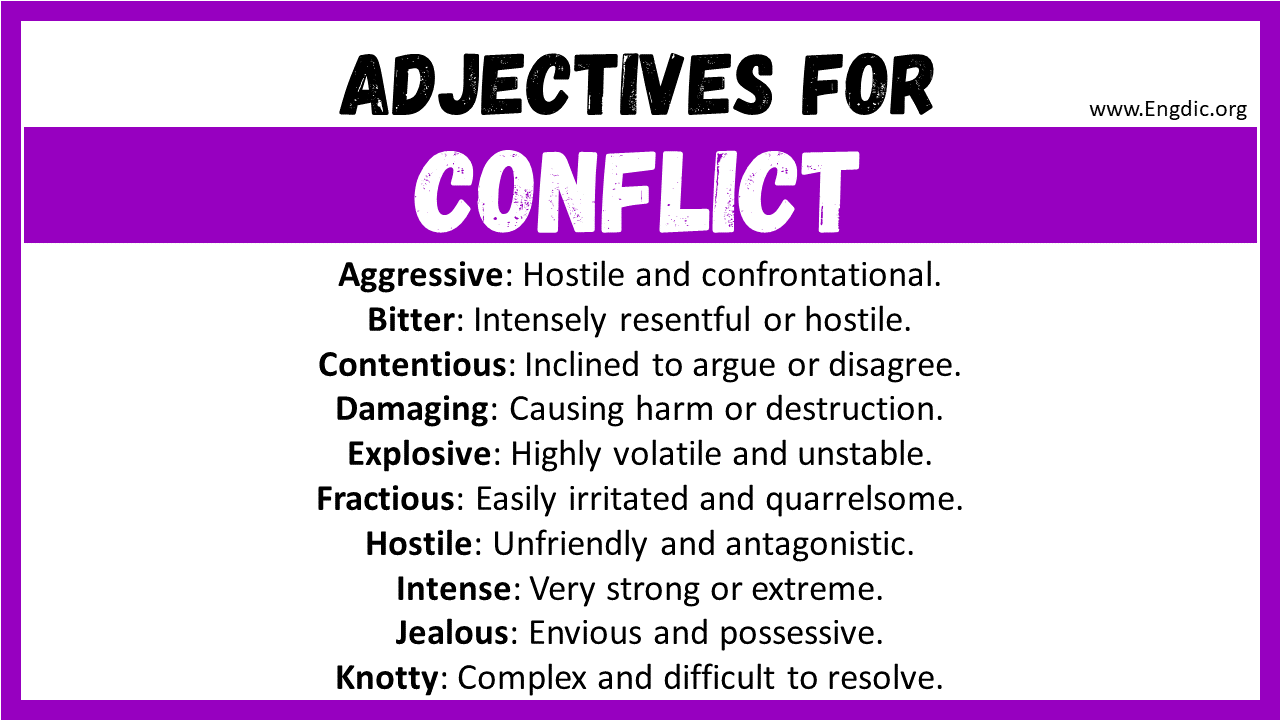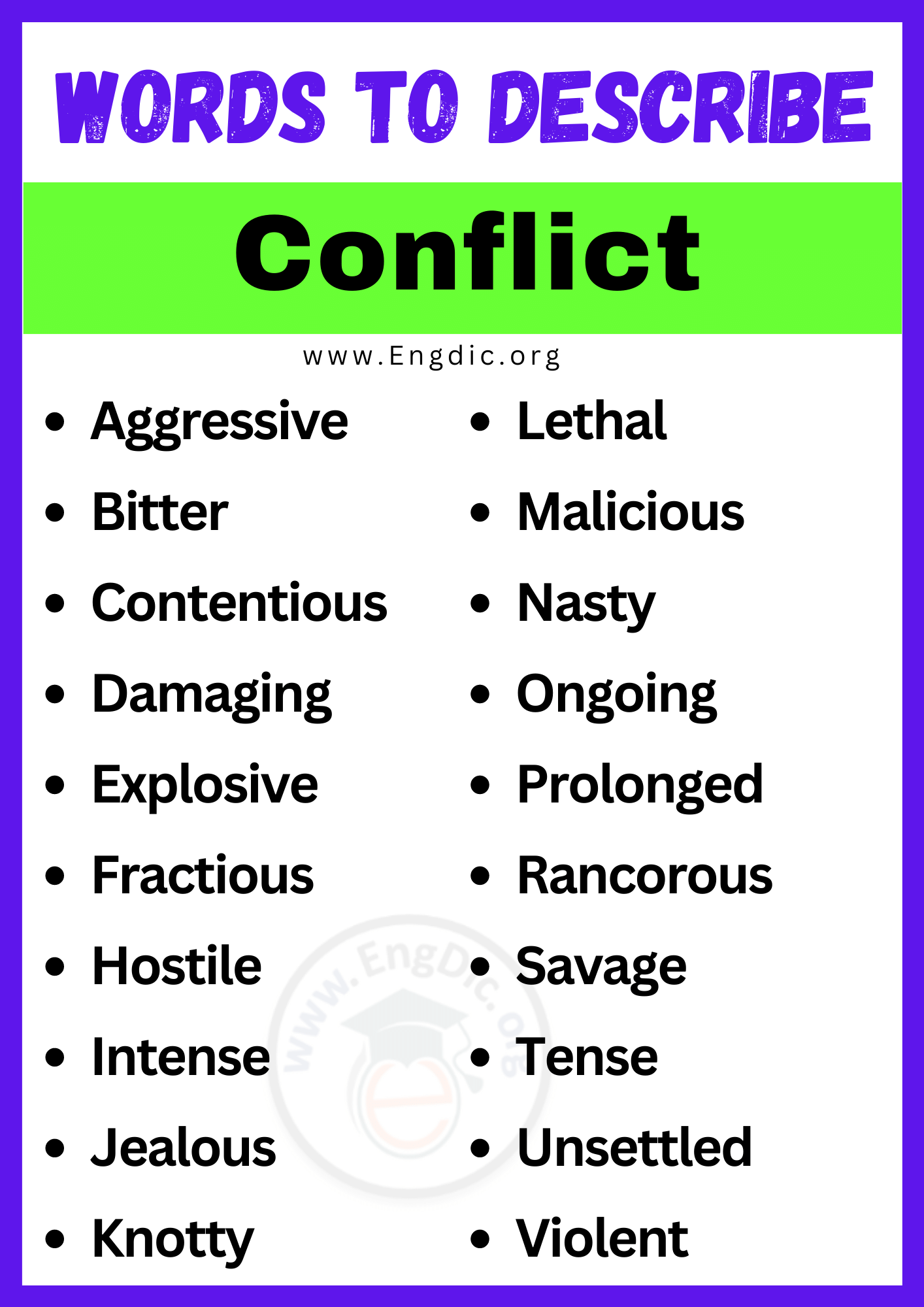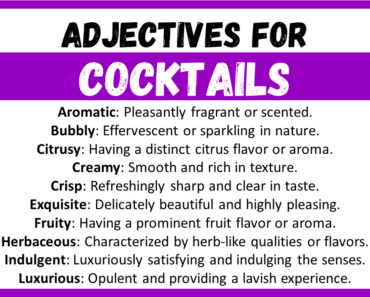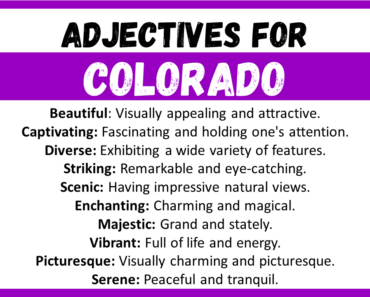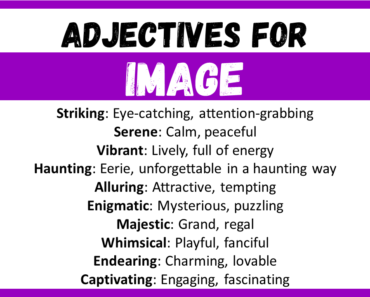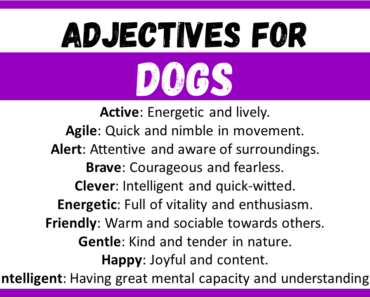Conflict, in its simplest form, refers to the clash of opposing forces, ideas, or interests. It is an inherent part of human interactions and can arise in various settings, be it personal relationships, workplaces, or even on a global scale. When engaging in discussions about conflict, certain words come to mind to vividly capture its essence. From tense and heated confrontations to subtle disagreements, exploring the vocabulary associated with conflict allows us to better understand its complexities and potential resolutions. In this blog post, we will delve into some powerful words that aptly describe conflict and shed light on the myriad emotions and dynamics it encompasses.
Adjectives for Conflict
Here are the 20 Most Popular adjectives for conflict:
- Aggressive
- Bitter
- Contentious
- Damaging
- Explosive
- Fractious
- Hostile
- Intense
- Jealous
- Knotty
- Lethal
- Malicious
- Nasty
- Ongoing
- Prolonged
- Rancorous
- Savage
- Tense
- Unsettled
- Violent
Adjectives for Conflict Resolution:
- Amicable
- Constructive
- Effective
- Collaborative
- Peaceful
- Productive
- Harmonious
- Diplomatic
- Compromising
- Mediating
Adjectives for Avoiding Conflict:
- Evasive
- Avoidant
- Cautious
- Skirting
- Non-confrontational
- Elusive
- Tactical
- Indirect
- Diplomatic
- Strategic
Words to Describe Conflict with Meanings
- Aggressive: Hostile and confrontational.
- Bitter: Intensely resentful or hostile.
- Contentious: Inclined to argue or disagree.
- Damaging: Causing harm or destruction.
- Explosive: Highly volatile and unstable.
- Fractious: Easily irritated and quarrelsome.
- Hostile: Unfriendly and antagonistic.
- Intense: Very strong or extreme.
- Jealous: Envious and possessive.
- Knotty: Complex and difficult to resolve.
- Lethal: Deadly and dangerous.
- Malicious: Intending to harm or cause trouble.
- Nasty: Mean-spirited and unpleasant.
- Ongoing: Continuously happening or developing.
- Prolonged: Extended in duration.
- Rancorous: Full of bitterness and resentment.
- Savage: Fierce and merciless.
- Tense: Marked by strain and unease.
- Unsettled: Not resolved or stable.
- Violent: Involving physical force or aggression.
Example Sentences for Conflict Adjectives
- The aggressive driver honked and swerved recklessly.
- Their argument turned bitter and hurtful.
- Contentious debates often lead to no resolution.
- The storm caused damaging floods in the area.
- The explosive situation demanded immediate attention.
- The fractious meeting achieved little progress.
- The nations remained hostile despite peace talks.
- The competition was intense until the very end.
- Her jealous remarks revealed her insecurity.
- Solving the knotty problem required creative thinking.
- The snake’s venom is lethal to its prey.
- He spread malicious rumors about his coworker.
- Their nasty comments hurt everyone’s feelings.
- The negotiation process is ongoing at the moment.
- The patient’s recovery was prolonged due to complications.
- The rancorous dispute divided the community.
- The wild animals had a savage fight over territory.
- The atmosphere in the room was tense and uneasy.
- The outcome of the election remains unsettled.
- The movie depicted violent scenes of warfare.
Explore More Words:
FAQ’s
How to describe the conflict in writing?
Conflict in writing can be portrayed through tense interactions, opposing viewpoints, and emotional turmoil between characters or ideas.
What is the adverb form of conflict?
The adverb form of conflict is “conflictingly,” which describes actions or situations that are in disagreement or opposition.
Is conflicting an adjective or noun?
“Conflicting” is an adjective used to describe things that are incompatible or contradictory, while “conflict” itself is a noun referring to a disagreement or struggle.
